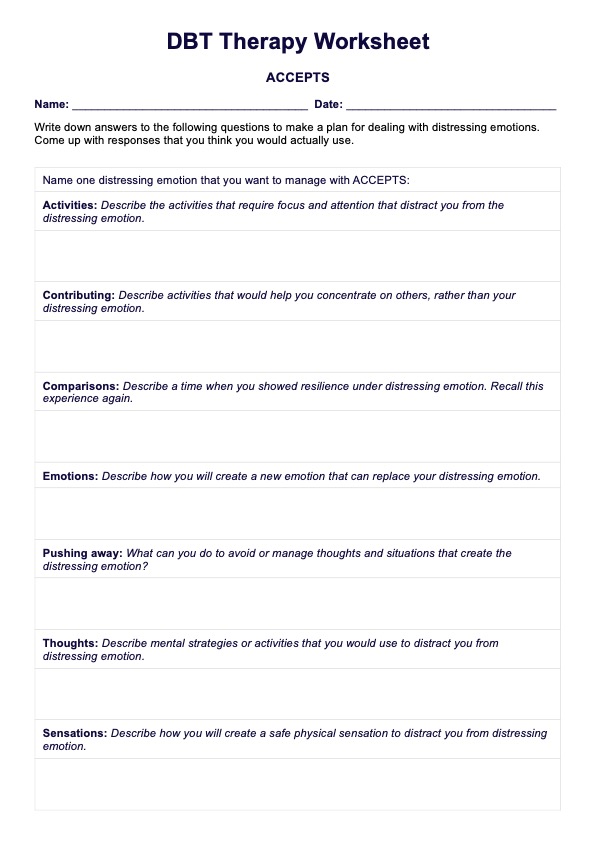CBT (Cognitive Behavioral Therapy) is a type of psychotherapy that helps individuals identify and challenge negative thought patterns and behaviors to improve their emotional state and overall mental health. DBT (Dialectical Behavioral Therapy) is a type of cognitive-behavioral therapy that is focused on helping individuals regulate their emotions and manage distress. It also has an emphasis on developing interpersonal skills and mindfulness.

DBT Therapy Worksheet
A printable DBT Therapy Worksheet that improves the client's skills of managing emotions, interpersonal interactions, and more.
DBT Therapy Worksheet Template
Commonly asked questions
DBT therapy worksheets are most successful when used in conjunction with a structured treatment plan. They can be used to help individuals become more mindful of their feelings and behavior, identify triggers and develop coping strategies, help manage difficult emotions, practice healthy communication skills, and work through complex issues that may arise in therapy.
A DBT group therapy worksheet is a type of worksheet typically used in Dialectical Behavior Therapy (DBT) group therapy sessions. It is designed to help clients identify and understand their thoughts, feelings, and behaviors, and provides a platform for them to explore how they can use DBT skills to cope with difficult situations. The worksheets typically include a section for clients to write down their thoughts and feelings, as well as to set goals and track their progress.
EHR and practice management software
Get started for free
*No credit card required
Free
$0/usd
Unlimited clients
Telehealth
1GB of storage
Client portal text
Automated billing and online payments











